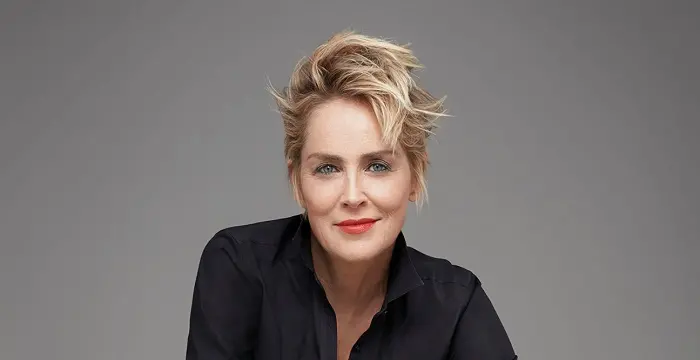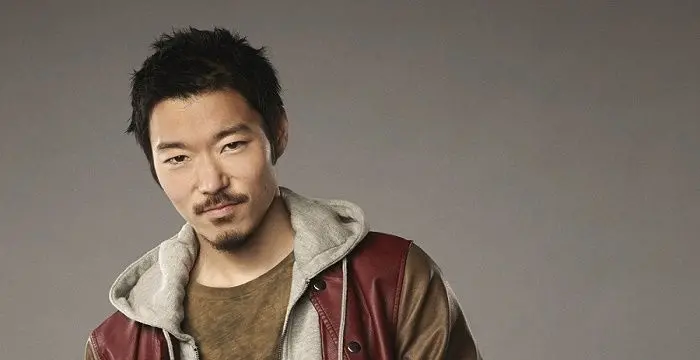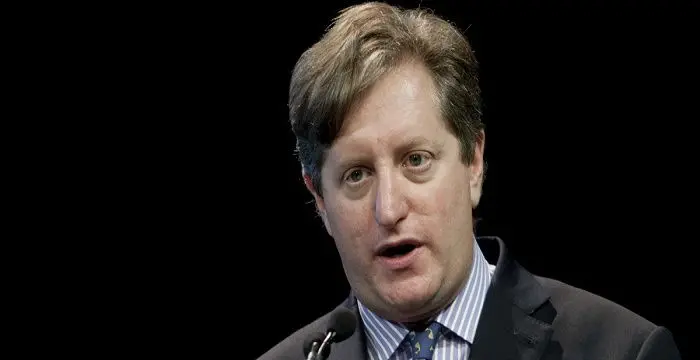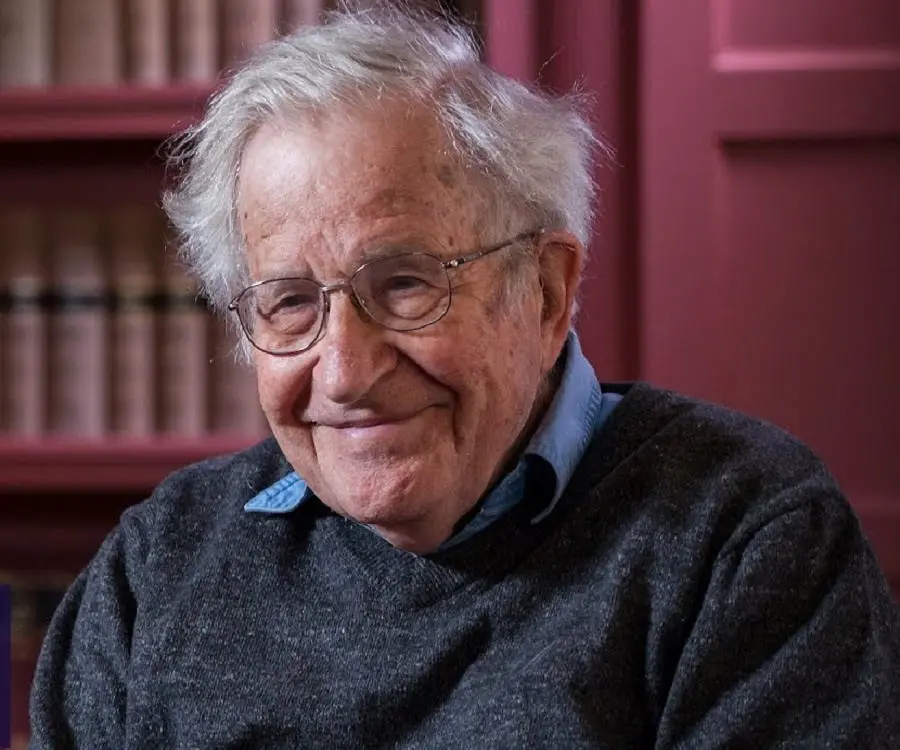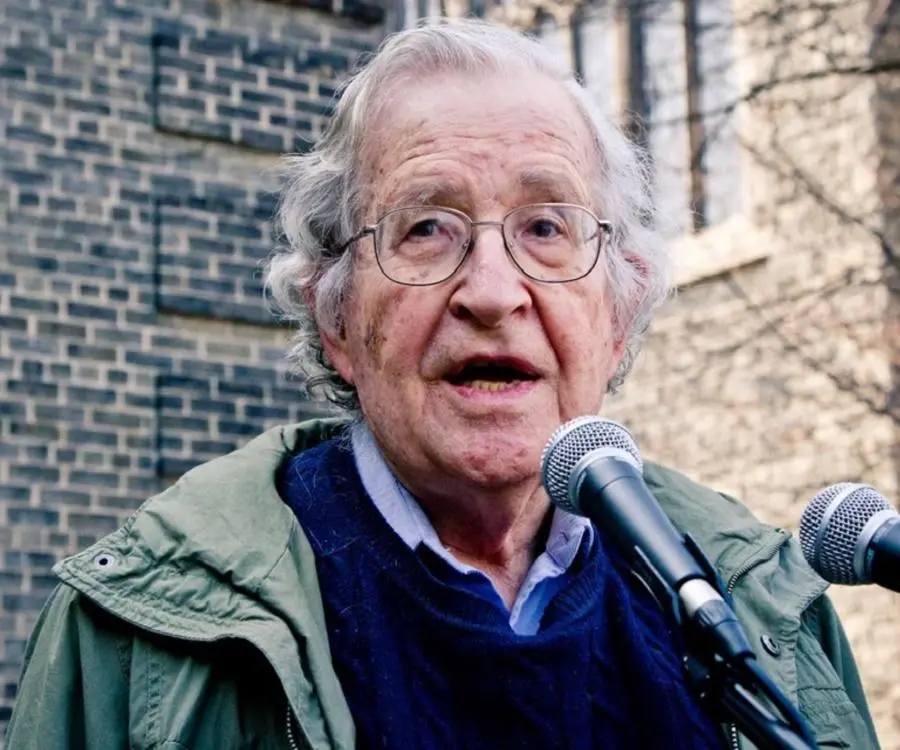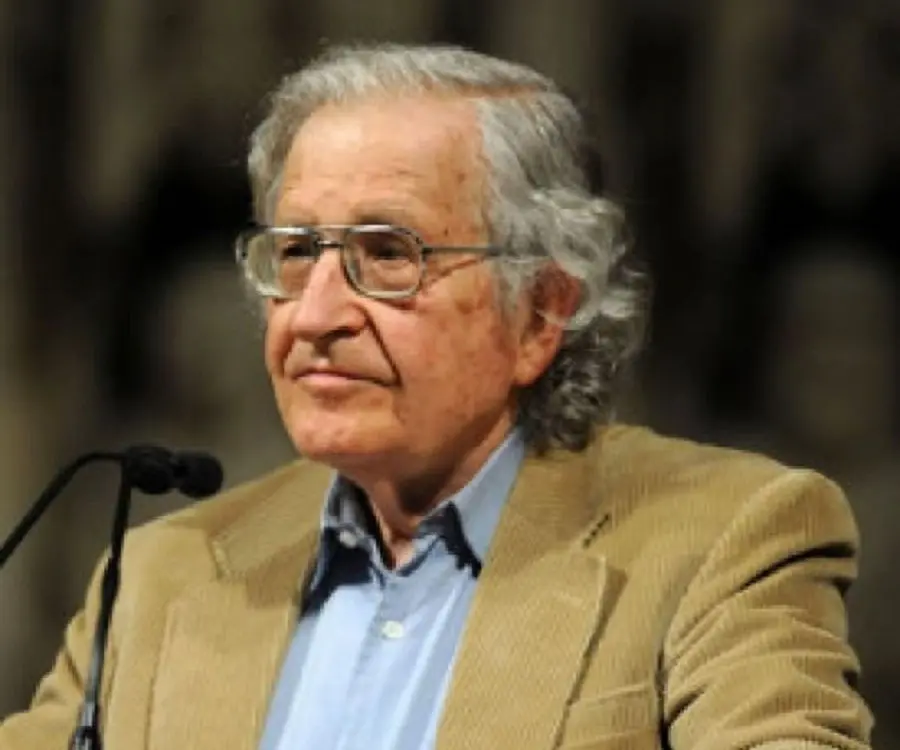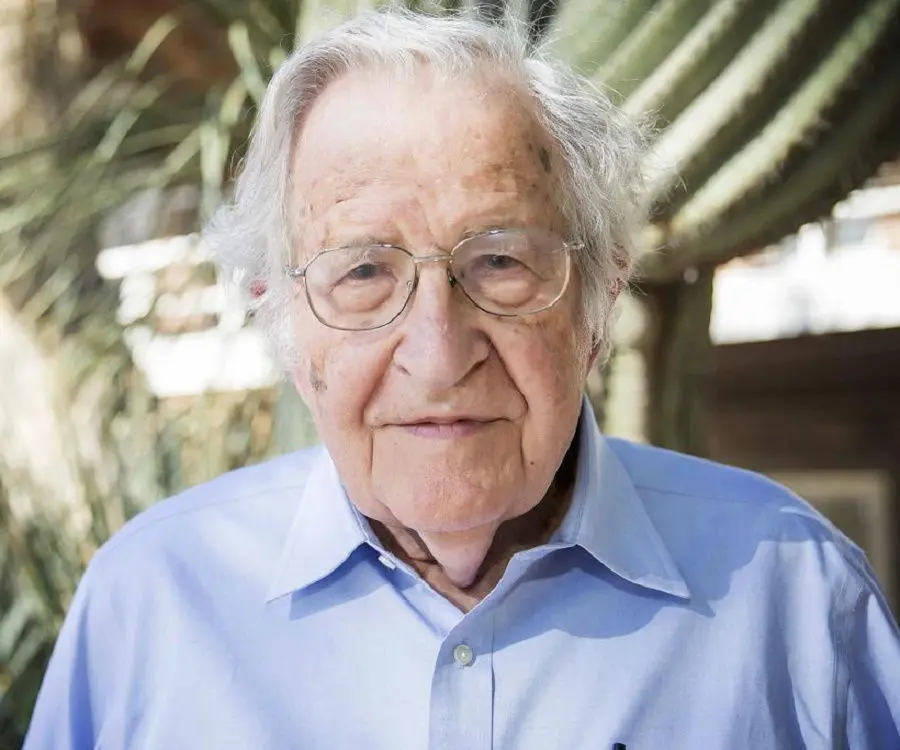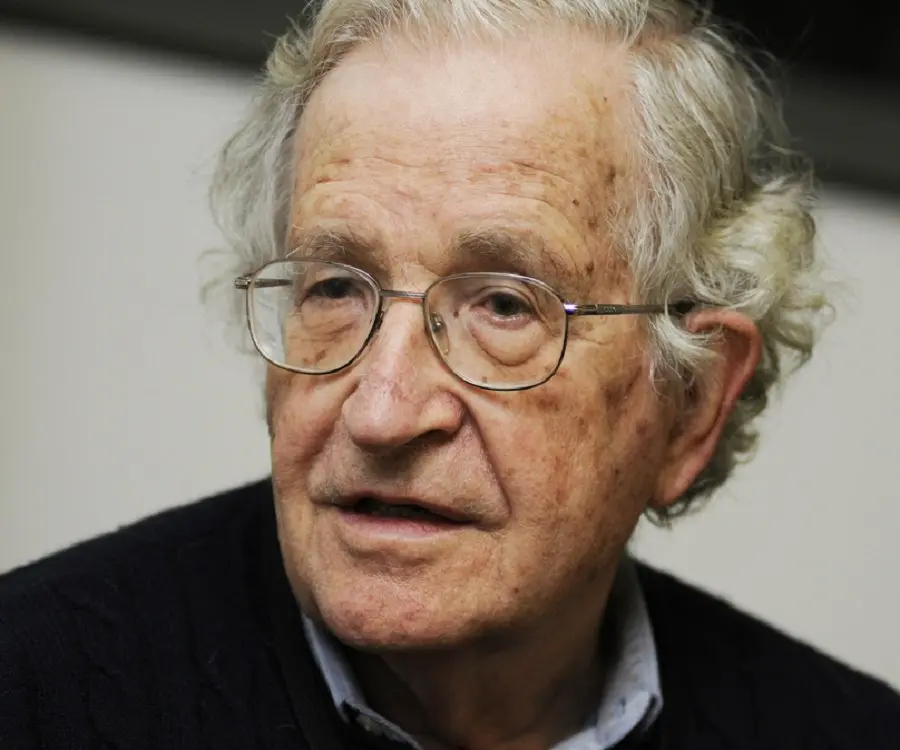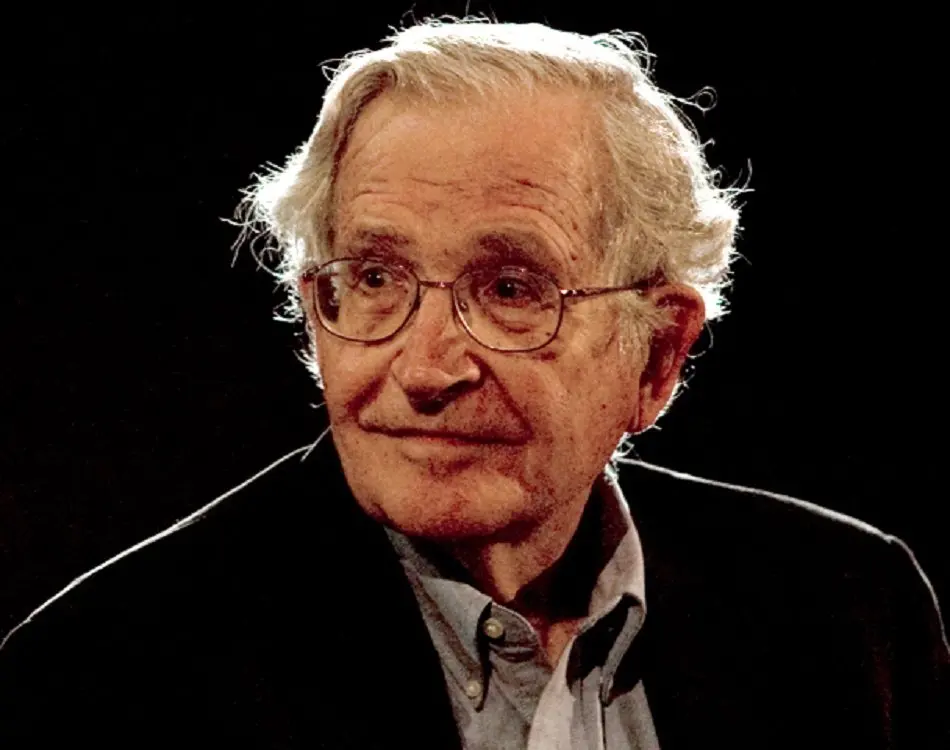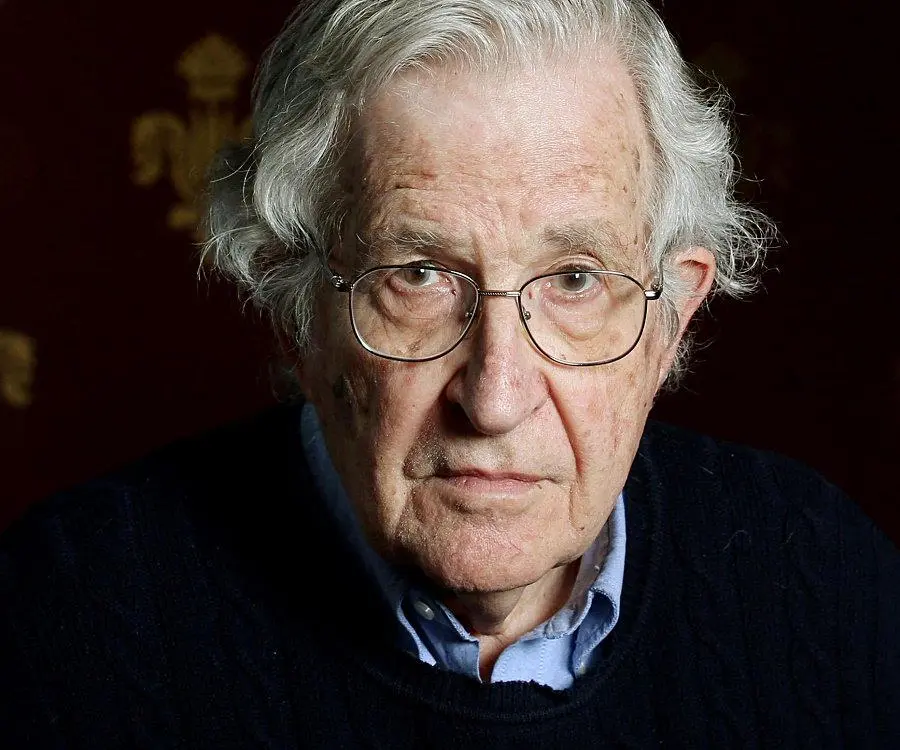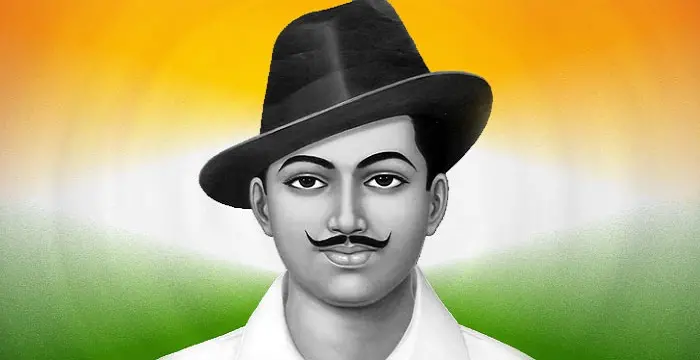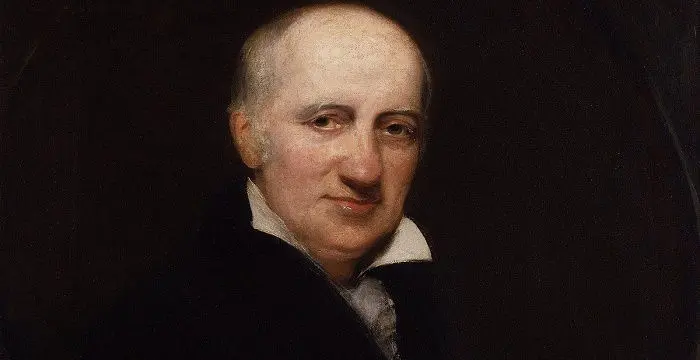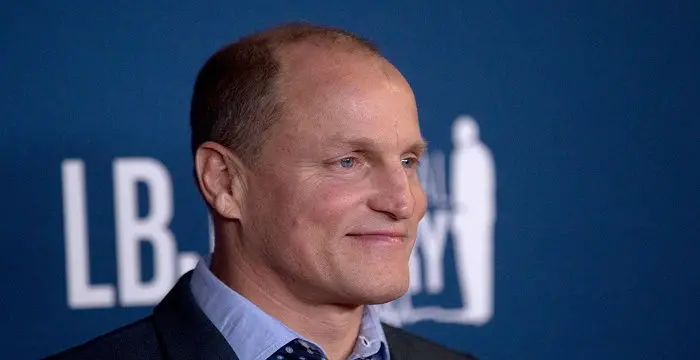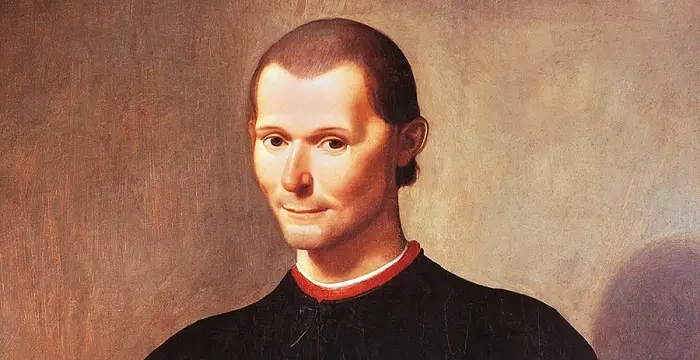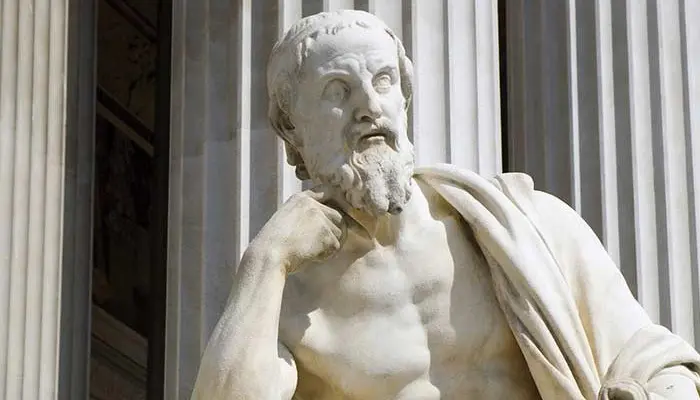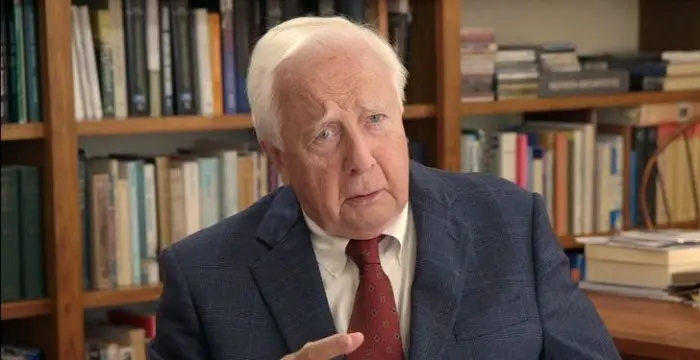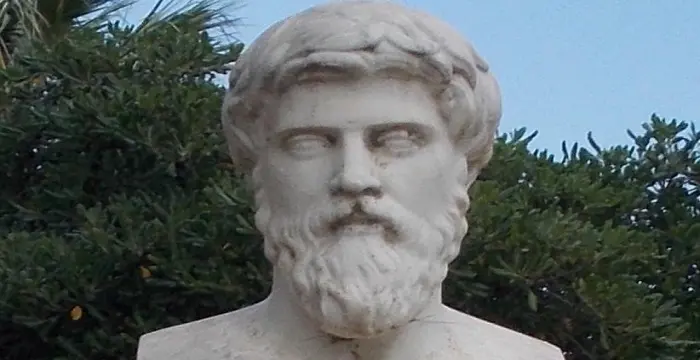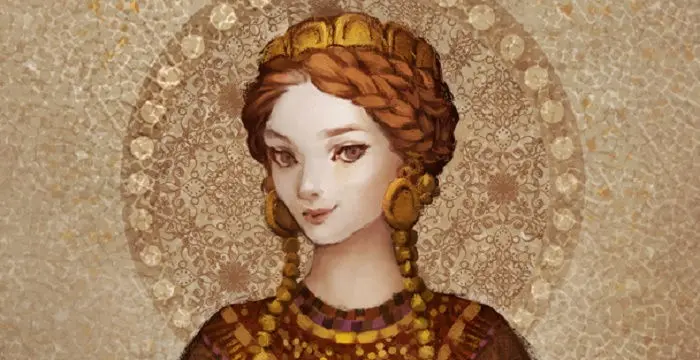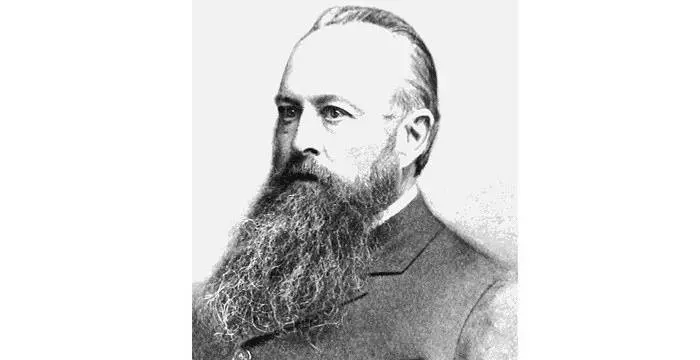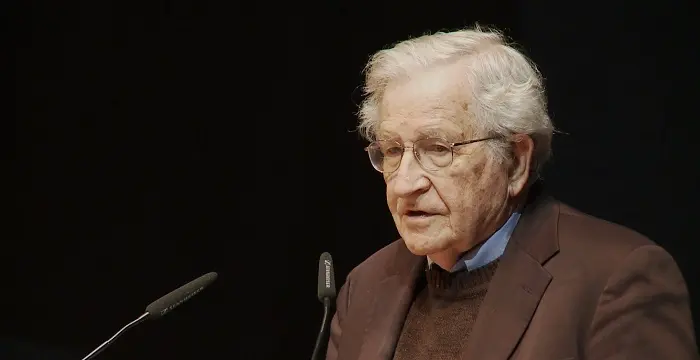
Noam Chomsky - INFJ, Life Achievements and Family
Noam Chomsky's Personal Details
Chomsky is an American linguist, political theorist, and activist, often referred to as "the father of modern linguistics”
| Information | Detail |
|---|---|
| Birthday | December 7, 1928 |
| Nationality | American |
| Famous | Atheists, Anarchists, University Of Pennsylvania, Activists, Intellectuals & Academics, Philosophers, Historians, Linguists, INFJ |
| Ideologies | Anarchists |
| City/State | Pennsylvania |
| Spouses | Carol Chomsky |
| Siblings | David Chomsky |
| Known as | Avram Noam Chomsky |
| Childrens | Aviva Chomsky, Diane Chomsky, Harry Chomsky |
| Universities |
|
| Notable Alumnis |
|
| Birth Place | East Oak Lane |
| Religion | Atheism, Judaism |
| Height | 169 |
| Gender | Male |
| Father | William Chomsky |
| Mother | Elsie Simonofsky |
| Net Worth | $5 million as of February 8,2017 |
| Sun Sign | Sagittarius |
| Born in | East Oak Lane |
| Famous as | Linguist |
// Famous University Of Pennsylvania
Sharon Stone
Sharon Stone is a Golden Globe Award winning American actress and former model. Read this biography to learn more about her childhood, profile, life and timeline.
Aaron Yoo
Aaron Yoo is a cinematographer and actor of Korean origin, who was born and raised in the United States of America. This biography of Aaron Yoo provides detailed information about his childhood, life, achievements, works & timeline.
Steve Eisman
Steve Eisman is an American businessman, money manager, and investor. Check out this biography to know about his childhood, family life, achievements and fun facts about him.
Noam Chomsky's photo
Who is Noam Chomsky?
Avram Noam Chomsky is an American linguist, political theorist, and activist, often referred to as "the father of modern linguistics." One of the most prominent philosophers and intellectuals of the contemporary era, he is also hailed as one of the founders of the field of cognitive science. He has described his own politics variously as anarchist, anarchosyndicalist, and libertarian socialist, and has been an unapologetic critic of American foreign policy from the past several decades. The son of a Jewish scholar, he grew up in an intellectually stimulating environment and studied philosophy, logic, and languages at the University of Pennsylvania. It was here that he developed an intense interest in philosophy, under the tutelage of his teacher Nelson Goodman. After completing his studies he joined the faculty of Massachusetts Institute of Technology (MIT). Initially he focused on teaching and writing and later became active as a political theorist as well. He became increasingly involved in left-wing activism and participated in anti-war protests which led to him being arrested on multiple occasions. Surprisingly though, his civil disobedience did not hamper his academic career in any way. Noam Chomsky rose to become an internationally recognized linguist and also mentored several students who became leading linguistic specialists in their own rights.
// Famous Philosophers
Martin Buber
One of the greatest philosophers to have ever walked on earth, Martin Buber contributions to philosophy is a long-standing one. Explore all about his profile, childhood, life and timeline here.
Lao Tzu (Laozi)
Lao Tzu was a legendary Chinese philosopher who wrote the important “Daodejing”. This biography profiles his childhood, life, career, achievements and timeline.
Alan Watts
Alan Watts was a famous British philosopher known for his Zen teachings and interpretations of Eastern philosophy. Read more about this great philosopher in the following article.
Childhood & Early Life
Avram Noam Chomsky was born on December 7, 1928, in Philadelphia, Pennsylvania, to William "Zev" Chomsky and his wife Elsie Simonofsky. His father was an Ashkenazi Jew originally from Ukraine who had migrated to the U.S. in the 1910s. Both his parents worked in education—his father as a scholar of Hebrew and his mother as a teacher.
Noam, along with his younger brother David, was raised in an intellectually stimulating environment. Several members of his extended family supported left-wing politics and the young boy was exposed to the ideals of socialism, anarchism, and Stalinism which helped to develop his own political inclination.
He attended the Central High School where he proved to be an exceptional student. He not only performed well in academics, but also actively participated in other co-curricular activities. However, he did not like the regimented method of teaching employed there.
In 1945, he entered the University of Pennsylvania where he studied philosophy, logic, and languages. During his university years, he met the Russian-born linguist Zellig Harris who kindled in the young Noam a deep interest in theoretical linguistics. Chomsky also developed interest in philosophy, thanks to the tutelage of Nelson Goodman. Chomsky received his M.A. in 1951.
On Goodman’s advice, Chomsky proceeded to the Harvard University in 1951 to work on his doctoral dissertation. He published his first academic article, ‘Systems of Syntactic Analysis’, in ‘The Journal of Symbolic Logic’ in 1952. Philosopher W. V. Quine, who was based at Harvard that time, strongly influenced Chomsky.
Noam Chomsky submitted his doctoral thesis on Transformational Analysis to the University of Pennsylvania and received a Ph.D. in linguistics in 1955.
Academic Career
Noam Chomsky was appointed as an assistant professor at the Massachusetts Institute of Technology (MIT) in 1955. There he was required to spend considerable time on a machine translation project along with his teaching duties.
His work was much appreciated and within two years he was promoted to the position of associate professor. He also served as a visiting professor at the Columbia University in 1957-58. In 1957, he published his first book ‘Syntactic Structures’ based on a series of lectures he gave to his students at MIT.
His book presented many novel ideas that greatly impressed the senior faculty at the university and thus Chomsky and his colleague Morris Halle were asked to establish a new graduate program in linguistics. The program proved to be a huge success and attracted several brilliant students like Robert Lees, Jerry Fodor, and Jerold Katz who eventually went on to become renowned linguists in their own rights.
Chomsky was made a full professor in the Department of Modern Languages and Linguistics in 1961. By this time he had established himself as a renowned linguist which led to his appointment as plenary speaker at the Ninth International Congress of Linguists, held in 1962 in Cambridge, Massachusetts. This further boosted his international reputation.
Along with his teaching career he continued to publish several influential works such as ‘Aspects of the Theory of Syntax’ (1966), ‘Topics in the Theory of Generative Grammar’ (1966), and ‘Cartesian Linguistics: A Chapter in the History of Rationalist Thought’ (1966).
Political Activism
In the late 1960s, Noam Chomsky started getting more involved in political activism. While he had always been vocal about his left-leanings, it was only in 1967 that he publicly started speaking against the United States foreign policy. His essay title ‘The Responsibility of Intellectuals’, published in ‘The New York Review of Books’ in February 1967 vocalized his views of dissent.
In 1969, he published his first political book ‘American Power and the New Mandarins’ in which he explained in details his opposition to the Vietnam War. He published several other political books over the following years which included ‘At War with Asia’ (1971), ‘The Backroom Boys’ (1973), ‘For Reasons of State’ (1973), and ‘Peace in the Middle East?’ (1975).
He did not stop with writing; he also actively participated in left-wing activism. He publicly supported students who refused the draft and even refused to pay half of his taxes. He collaborated with other like-minded people such as with Mitchell Goodman, Denise Levertov, William Sloane Coffin, and Dwight Macdonald to found the anti-war collective RESIST. Due to his activism, he was also arrested numerous times. But nothing could deter his rebellious spirit.
As a prominent academician, he used his university position to motivate and inspire the student activists, and along with his colleague Louis Kampf began running special courses on politics at MIT, independently of the political science department which he felt was too conservative.
Noam Chomsky travelled to Hanoi in 1970 to give a lecture at the Hanoi University of Science and Technology. On this trip he also visited the refugee camps at Laos. The following year, he gave the Bertrand Russell Memorial Lectures at the University of Cambridge. His lectures were collected and published as ‘Problems of Knowledge and Freedom’ in late 1971.
The 1970s saw him travel to several parts of the world to deliver lectures. He also continued to publish prolifically on the subject of linguistics, his popular works of this period being ‘Studies on Semantics in Generative Grammar’ (1972), an enlarged edition of ‘Language and Mind’ (1972), and ‘Reflections on Language’ (1975).
A major work of his during this period was the book ‘Counter-Revolutionary Violence – Bloodbaths in Fact & Propaganda’ which he wrote in collaboration with Edward S. Herman. Published in 1973, the book offers a critique of United States foreign policy in Indochina, with significant focus on the Vietnam War.
An incident happened in the late 1970s that kindled considerable controversy. In 1979, Noam Chomsky signed a petition in support of the free-speech rights of Robert Faurisson, a French lecturer whose views contradicted the accepted history of the Holocaust. Even though Chomsky himself condemned the Nazis, his public support for Faurisson earned him much criticism. This episode would have a lasting impact on Chomsky’s career and image.
He intensified his involvement in political activism in the 1980s. He travelled to Managua Nicaragua's Contra War in 1985 and gave public lectures on politics and linguistics to the workers’ organizations and refugees. Many of these lectures were collected and later published as ‘On Power and Ideology: The Managua Lectures’ in 1987.
In 1988, Chomsky co-authored ‘Manufacturing Consent: The Political Economy of the Mass Media’ with Herman. This book detailed what the authors called “propaganda model” as a tool for understanding mainstream media. The book was later adapted into a film ‘Manufacturing Consent: Noam Chomsky and the Media’ (1992), which was directed by Mark Achbar and Peter Wintonick.
With the passing years, his passion for activism only increased and by the end of the 1980s, he had risen to the position of a much respected political activist on the international scenario. His excellence as a linguist also continued to increase.
One of the political issues close to his heart was the cause of East Timorese independence. He visited Australia in 1995 to discuss this issue at the request of the East Timorese Relief Association and the National Council for East Timorese Resistance. His lectures were very well received and were published as ‘Powers and Prospects’ in 1996. East Timor's independence from Indonesia was finally achieved in 1999 and Noam Chomsky’s efforts are believed to have greatly aided the cause.
Later Years
He retired from teaching in the 1990s though he continued to interact with the students and give lectures. By this time, several of his past students had become renowned linguists in their own rights.
Being a prominent anti-war activist, he was widely interviewed following the September 11 attacks in 2001. Chomsky, who had always criticized the U.S. foreign policy, felt that the ensuing War on Terror was not a new development but just the continuation of the same US foreign policy that had been pursued from the 1980s. Even though he condemned the terror attacks, he did not support the so-called War on Terror either.
A collection of interviews with Noam Chomsky and essays by him were published in the form of a book ’9-11’ in late 2001. A revised edition, ‘9-11: Was There an Alternative?’ was out in 2011. In these essays Chomsky analyzed the events leading to 9-11 in an unbiased way and expressed his criticism of the U.S.’s indiscriminate use of power, calling it “a leading terrorist state.”
Even though his book became a best-seller and received praise from several radical thinkers, he also received negative criticism for his revolutionary and “unpatriotic” views as he heavily criticized the actions of the United States. Despite his years of experience as a political activist, some critics argued that he has no expertise in political issues.
Major Works
Noam Chomsky is a towering international figure in the field of linguistics and is often referred to as "the father of modern linguistics." His linguistic contributions include Chomsky Normal Form, Chomsky hierarchy, and the Chomsky–Schützenberger theorem, among others. He also performed vital works in the fields of Minimalist program, Non-configurational language, Parasitic gap, Phonology, and Phrase structure grammar.
’Manufacturing Consent: The Political Economy of the Mass Media’, a book that Chomsky wrote with Edward Herman is one of his most powerful works. In this book the authors presented their “propaganda model” which seeks to explain how populations are manipulated by mass communication businesses.
Awards & Achievements
Noam Chomsky was named one of the "makers of the twentieth century" by ‘The London Times’ in 1970.
In 1984, he was honored with the APA Award for Distinguished Scientific Contributions to Psychology.
He won the NCTE George Orwell Award for Distinguished Contribution to Honesty and Clarity in Public Language twice (1987, 1989).
The various awards and accolades he has received also include Kyoto Prize in Basic Sciences (1988), Helmholtz Medal (1996), and Benjamin Franklin Medal in Computer and Cognitive Science (1999).
In 2011, Chomsky was given the Sydney Peace Prize which promotes peace with justice and the practice of nonviolence.
He is also the recipient of numerous honorary degrees from prestigious institutions like Harvard University, University of Cambridge, McGill University, University of Pennsylvania, and Peking University among others.
Personal Life & Legacy
In 1947, Noam Chomsky became romantically involved with Carol Doris Schatz, a lady he had known since his childhood. The couple got married in 1949 and was blessed with three children. His wife was also a linguist and an education specialist who studied language acquisition in children. The couple had a long married life that lasted up to Carol’s death in 2008.
Even though he was devastated by the death of his wife, he eventually found love again, leading to his second marriage to Valeria Wasserman in 2014.
He was raised a Jew but later on he moved away from his Jewish traditions and currently identifies himself as “non-religious.”
// Famous Anarchists
Bhagat Singh
Bhagat Singh was an Indian revolutionary who played a pivotal role in the Indian Independence movement. This biography of Bhagat Singh provides detailed information about his childhood, life, achievements, works & timeline.
William Godwin
William Godwin was a famous political philosopher, journalist and novelist. He is also one of the proponents of anarchism. Explore this biography to learn more about his profile, childhood, life and timeline.
Woody Harrelson
Woody Harrelson is an American actor and activist. This biography provides detailed information about his childhood, life, film career, achievements and timeline.
Noam Chomsky biography timelines
- // 7th Dec 1928Avram Noam Chomsky was born on December 7, 1928, in Philadelphia, Pennsylvania, to William "Zev" Chomsky and his wife Elsie Simonofsky. His father was an Ashkenazi Jew originally from Ukraine who had migrated to the U.S. in the 1910s. Both his parents worked in education—his father as a scholar of Hebrew and his mother as a teacher.
- // 1945In 1945, he entered the University of Pennsylvania where he studied philosophy, logic, and languages. During his university years, he met the Russian-born linguist Zellig Harris who kindled in the young Noam a deep interest in theoretical linguistics. Chomsky also developed interest in philosophy, thanks to the tutelage of Nelson Goodman. Chomsky received his M.A. in 1951.
- // 1947In 1947, Noam Chomsky became romantically involved with Carol Doris Schatz, a lady he had known since his childhood. The couple got married in 1949 and was blessed with three children. His wife was also a linguist and an education specialist who studied language acquisition in children. The couple had a long married life that lasted up to Carol’s death in 2008.
- // 1951On Goodman’s advice, Chomsky proceeded to the Harvard University in 1951 to work on his doctoral dissertation. He published his first academic article, ‘Systems of Syntactic Analysis’, in ‘The Journal of Symbolic Logic’ in 1952. Philosopher W. V. Quine, who was based at Harvard that time, strongly influenced Chomsky.
- // 1955Noam Chomsky submitted his doctoral thesis on Transformational Analysis to the University of Pennsylvania and received a Ph.D. in linguistics in 1955.
- // 1955Noam Chomsky was appointed as an assistant professor at the Massachusetts Institute of Technology (MIT) in 1955. There he was required to spend considerable time on a machine translation project along with his teaching duties.
- // 1957His work was much appreciated and within two years he was promoted to the position of associate professor. He also served as a visiting professor at the Columbia University in 1957-58. In 1957, he published his first book ‘Syntactic Structures’ based on a series of lectures he gave to his students at MIT.
- // 1961Chomsky was made a full professor in the Department of Modern Languages and Linguistics in 1961. By this time he had established himself as a renowned linguist which led to his appointment as plenary speaker at the Ninth International Congress of Linguists, held in 1962 in Cambridge, Massachusetts. This further boosted his international reputation.
- // 1966Along with his teaching career he continued to publish several influential works such as ‘Aspects of the Theory of Syntax’ (1966), ‘Topics in the Theory of Generative Grammar’ (1966), and ‘Cartesian Linguistics: A Chapter in the History of Rationalist Thought’ (1966).
- // 1967In the late 1960s, Noam Chomsky started getting more involved in political activism. While he had always been vocal about his left-leanings, it was only in 1967 that he publicly started speaking against the United States foreign policy. His essay title ‘The Responsibility of Intellectuals’, published in ‘The New York Review of Books’ in February 1967 vocalized his views of dissent.
- // 1969 To 1973In 1969, he published his first political book ‘American Power and the New Mandarins’ in which he explained in details his opposition to the Vietnam War. He published several other political books over the following years which included ‘At War with Asia’ (1971), ‘The Backroom Boys’ (1973), ‘For Reasons of State’ (1973), and ‘Peace in the Middle East?’ (1975).
- // 1970Noam Chomsky travelled to Hanoi in 1970 to give a lecture at the Hanoi University of Science and Technology. On this trip he also visited the refugee camps at Laos. The following year, he gave the Bertrand Russell Memorial Lectures at the University of Cambridge. His lectures were collected and published as ‘Problems of Knowledge and Freedom’ in late 1971.
- // 1970Noam Chomsky was named one of the "makers of the twentieth century" by ‘The London Times’ in 1970.
- // 1972The 1970s saw him travel to several parts of the world to deliver lectures. He also continued to publish prolifically on the subject of linguistics, his popular works of this period being ‘Studies on Semantics in Generative Grammar’ (1972), an enlarged edition of ‘Language and Mind’ (1972), and ‘Reflections on Language’ (1975).
- // 1973A major work of his during this period was the book ‘Counter-Revolutionary Violence – Bloodbaths in Fact & Propaganda’ which he wrote in collaboration with Edward S. Herman. Published in 1973, the book offers a critique of United States foreign policy in Indochina, with significant focus on the Vietnam War.
- // 1979An incident happened in the late 1970s that kindled considerable controversy. In 1979, Noam Chomsky signed a petition in support of the free-speech rights of Robert Faurisson, a French lecturer whose views contradicted the accepted history of the Holocaust. Even though Chomsky himself condemned the Nazis, his public support for Faurisson earned him much criticism. This episode would have a lasting impact on Chomsky’s career and image.
- // 1984In 1984, he was honored with the APA Award for Distinguished Scientific Contributions to Psychology.
- // 1985He intensified his involvement in political activism in the 1980s. He travelled to Managua Nicaragua's Contra War in 1985 and gave public lectures on politics and linguistics to the workers’ organizations and refugees. Many of these lectures were collected and later published as ‘On Power and Ideology: The Managua Lectures’ in 1987.
- // 1987 To 1989He won the NCTE George Orwell Award for Distinguished Contribution to Honesty and Clarity in Public Language twice (1987, 1989).
- // 1988In 1988, Chomsky co-authored ‘Manufacturing Consent: The Political Economy of the Mass Media’ with Herman. This book detailed what the authors called “propaganda model” as a tool for understanding mainstream media. The book was later adapted into a film ‘Manufacturing Consent: Noam Chomsky and the Media’ (1992), which was directed by Mark Achbar and Peter Wintonick.
- // 1988 To 1999The various awards and accolades he has received also include Kyoto Prize in Basic Sciences (1988), Helmholtz Medal (1996), and Benjamin Franklin Medal in Computer and Cognitive Science (1999).
- // 1995One of the political issues close to his heart was the cause of East Timorese independence. He visited Australia in 1995 to discuss this issue at the request of the East Timorese Relief Association and the National Council for East Timorese Resistance. His lectures were very well received and were published as ‘Powers and Prospects’ in 1996. East Timor's independence from Indonesia was finally achieved in 1999 and Noam Chomsky’s efforts are believed to have greatly aided the cause.
- // 2001A collection of interviews with Noam Chomsky and essays by him were published in the form of a book ’9-11’ in late 2001. A revised edition, ‘9-11: Was There an Alternative?’ was out in 2011. In these essays Chomsky analyzed the events leading to 9-11 in an unbiased way and expressed his criticism of the U.S.’s indiscriminate use of power, calling it “a leading terrorist state.”
- // 2011In 2011, Chomsky was given the Sydney Peace Prize which promotes peace with justice and the practice of nonviolence.
- // 2014Even though he was devastated by the death of his wife, he eventually found love again, leading to his second marriage to Valeria Wasserman in 2014.
// Famous Historians
Niccolò Machiavelli
Niccolo Machiavelli was an Italian politician, historian and philosopher who is widely known as a founder of modern political science.
Herodotus
Herodotus was a Greek historian widely referred to as 'The Father of History'. This biography of Herodotus provides detailed information about his childhood, life, achievements, works & timeline.
David McCullough
David McCullough, known as the ‘master of the art of narrative history’, is an American author, narrator, historian and lecturer. Check out this biography to get detailed information on his life.
Plutarch
Plutarch was a famous Greek biographer and essayist. This biography profiles his childhood, life, works, achievements and interesting facts about life.
Anna Comnena
Anna Comnena was the Greek princess and scholar who wrote the ‘Alexiad’. This biography of Anna Julia Cooper provides detailed information about her childhood, life, achievements, works & timeline.
Lord Acton
Lord Acton was a Catholic historian and politician regarded as one of the most learned Englishmen of his time. This biography of Lord Acton provides detailed information about his childhood, life, achievements, works & timeline.
Noam Chomsky's FAQ
What is Noam Chomsky birthday?
Noam Chomsky was born at 1928-12-07
Where is Noam Chomsky's birth place?
Noam Chomsky was born in East Oak Lane
What is Noam Chomsky nationalities?
Noam Chomsky's nationalities is American
What is Noam Chomsky ideologies?
Noam Chomsky's ideologies is Anarchists
Who is Noam Chomsky spouses?
Noam Chomsky's spouses is Carol Chomsky
Who is Noam Chomsky siblings?
Noam Chomsky's siblings is David Chomsky
Who is Noam Chomsky childrens?
Noam Chomsky's childrens is Aviva Chomsky, Diane Chomsky, Harry Chomsky
What was Noam Chomsky universities?
Noam Chomsky studied at University Of Pennsylvania, 1955 - University of Pennsylvania, 1949 - University of Pennsylvania, 1951 - University of Pennsylvania, 1945 - Central High School
What was Noam Chomsky notable alumnis?
Noam Chomsky's notable alumnis is University Of Pennsylvania
What is Noam Chomsky's religion?
Noam Chomsky's religion is Atheism, Judaism
How tall is Noam Chomsky?
Noam Chomsky's height is 169
Who is Noam Chomsky's father?
Noam Chomsky's father is William Chomsky
Who is Noam Chomsky's mother?
Noam Chomsky's mother is Elsie Simonofsky
What is Noam Chomsky's sun sign?
Noam Chomsky is Sagittarius
How famous is Noam Chomsky?
Noam Chomsky is famouse as Linguist
